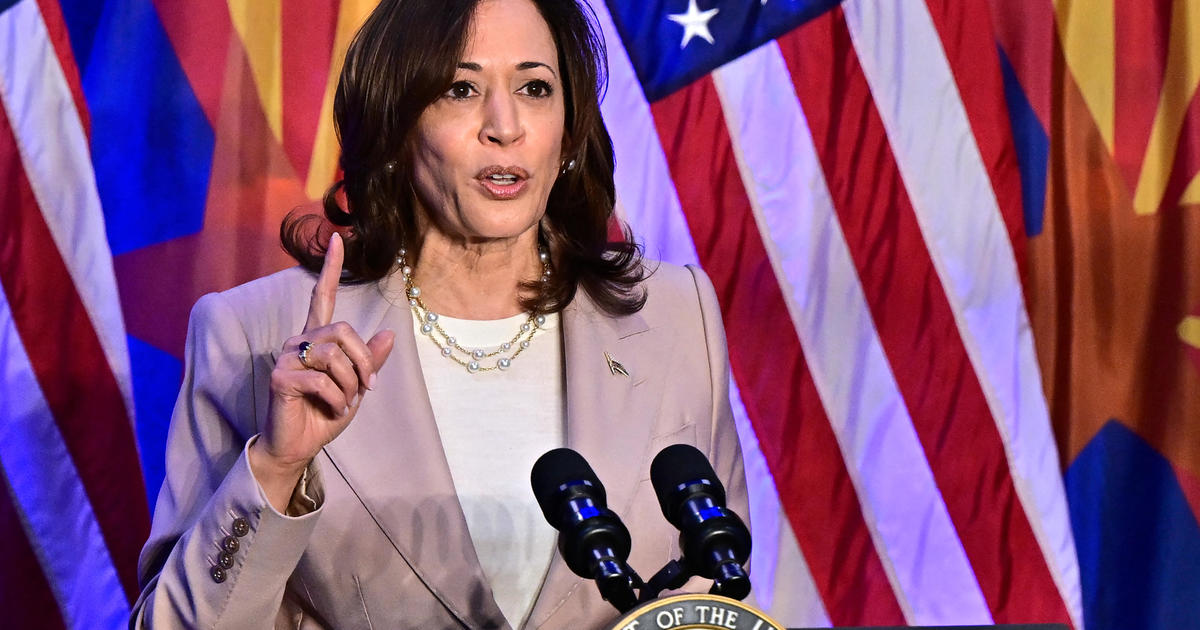Thousands of U.S. immigration agency employees could face furloughs without emergency funds
Thousands of U.S. Citizenship and Immigration Services employees could be furloughed in late July unless the cash-strapped government agency, which oversees the nation's legal immigration system, receives more than a billion dollars in emergency funds from Congress.
Without congressional action, USCIS, which relies mostly on application fees to finance day-to-day operations, could furlough "a portion" of its employees starting on July 20, the agency's deputy director for policy, Joseph Edlow, said in a message to staffers Tuesday afternoon.
In his message to employees, which was obtained by CBS News, Edlow said he has been talking to lawmakers and their staff about the agency's "dramatic decrease" in revenue during the coronavirus pandemic. Edlow added that he hopes members of Congress "will respond to our request favorably as soon as possible to ensure uninterrupted agency operations."
The national union representing thousands of USCIS employees was informed by the agency on Tuesday that approximately 10,800 bargaining employees could face furloughs, which would last for more than 30 days, according to a letter obtained by CBS News. A spokesperson for USCIS confirmed the notification, but declined to say how many employees and which offices would be affected.
"The coronavirus pandemic has had a significant impact on our agency's financial outlook," a top USCIS official wrote in the letter to Danielle Spooner, president of the national union for agency employees. "Since the declaration of the national emergency, application and petition receipts dropped to half their previous levels and with them, agency revenue that keeps our doors open."
Created in the wake of the 9/11 attacks, USCIS administers and grants work permits, green cards, asylum requests and other immigration benefits for non-citizens. USCIS closed its offices to the public during the pandemic, which has curtailed the processing of certain activities, including biometric gathering, in-person interviews and most naturalization ceremonies for those seeking to become U.S. citizens.
USCIS estimates that applications will continue to drop by about 61% through September, agency officials said. By the end of the summer, the agency is expected to run out of funding, the officials added. USCIS said it has already limited spending to salary and "mission-critical" operations.
Earlier this month, USCIS asked Congress for $1.2 billion in funds over two years, citing the sharp drop in benefit applications during the pandemic. USCIS has pledged to repay the funds to the U.S. Treasury Department. The proposal submitted to Congress would require the agency to add a 10% surcharge on immigration petitions.
According to the letter sent to the president of the national USCIS union, the agency is hoping to use $571.12 million in funds for payroll, rent, office contracts, fingerprint and background check processing and IT services during the remainder of fiscal year 2020. The rest, about $650 million, would be used to ensure "sufficient resources are available" at the start of fiscal year 2021.
The White House budget office backed USCIS' request to Congress.
"The Administration supports efforts to ensure USCIS operations continue until fee revenues resume through a surcharge cost recovery approach that will result in no additional cost to the American taxpayer or increase the deficit," a spokesperson for the Office of Management and Budget, or OMB, told CBS News. "OMB has been working closely with DHS to identify mitigation strategies and supports a 'pay it forward' deficit neutral approach that ensures full cost recovery of any emergency supplemental."
Some have said that the pandemic is not the sole source of USCIS' financial woes. Michael Knowles, a U.S. asylum officer and president of the local union for USCIS employees in the Washington, D.C. area, said the Trump administration's immigration restrictions have also likely affected the agency's revenue.
In recent years, the administration has implemented several measures that have limited the avenues for foreigners to obtain immigration benefits like permanent residency and asylum. Since February, USCIS has been enforcing a sweeping restriction, known as the "public charge" rule, that gives caseworkers more power to deny green cards and visas to immigrants or would-be immigrants who rely — or could rely — on government aid.
Knowles said he understands why there may be some hesitation in Congress, particularly among Democrats, to authorize the emergency funding given the administration's immigration agenda. But he stressed that everyone would suffer from large-scale furloughs, including USCIS employees, immigrant applicants and U.S. citizens.
"These are not only services providing benefits to immigrants, but these are services provided to American citizens who are petitioning for family members, people who are adopting children," Knowles told CBS News. "We also provide services to employers who are verifying the legal status of their employees."
"We should not be looking for the immigration services agency to fail," he added.
Sara Cook contributed to this report.




